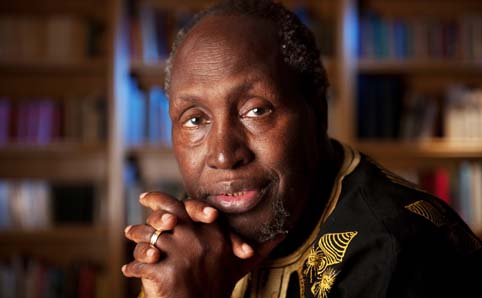 |
| Prof. Ngũgĩ wa Thiong'o
Photo: Daniel Anderson-UComm
8 May 2012 |
Profile of Professor Ngũgĩ wa Thiong'o (pdf format)
To commemorate Africa Day on 25 May 2012, we will be hosting one of the continent’s most renowned writers, Professor Ngũgĩ wa Thiong'o.
Prof. Ngũgĩ wa Thiong'o will deliver an Africa Day Lecture titled, “The Blackness of Black: Africa in the World Today”.
Prof. Ngũgĩ wa Thiong’o, who was born in Kenya, is currently a Distinguished Professor of English and Comparative Literature at the University of California, Irvine. He is the recipient of eight Honorary Doctorates and an Honorary Member of the American Academy of Arts and Letters. Famous works of Prof. Ngũgĩ wa Thiong'o include A grain of wheat, Weep not child, The river between, Secret lives and Petals of blood.
Africa Day marks the founding of the Organisation of Africa Unity (OAU) in 1963. Although the OAU underwent a name change in July 2002 to become the African Union (AU), 25 May still commemorated to symbolise Africa’s independence from foreign political control and affirms Africa’s quest for durable peace and unity.
- Date: 25 May 2012
- Venue: Odeion
- Time: 18:00